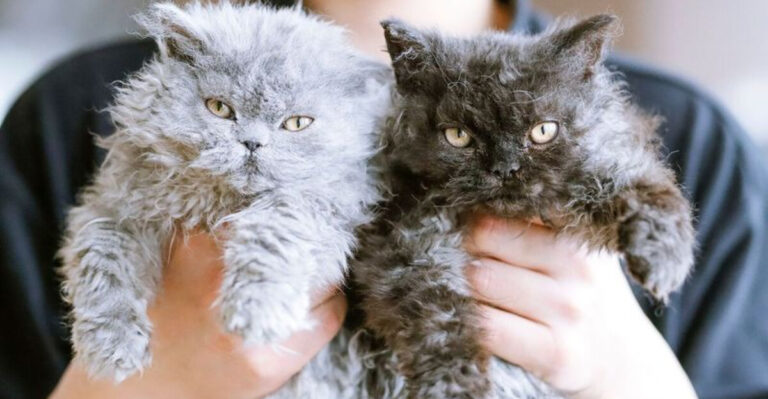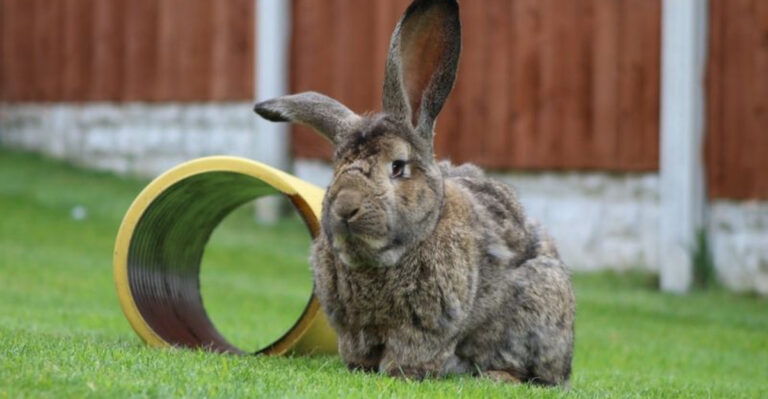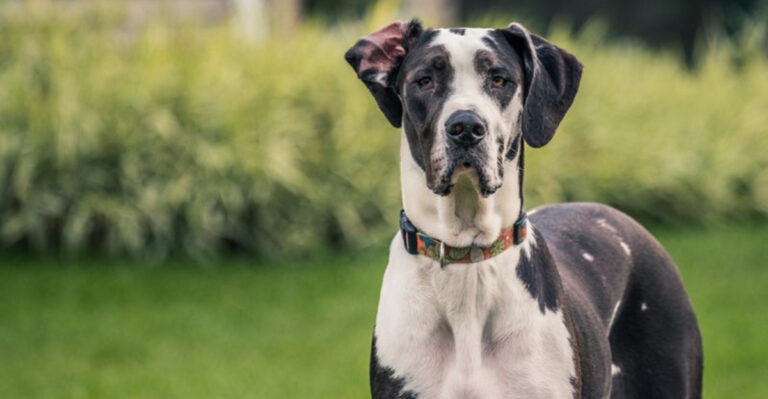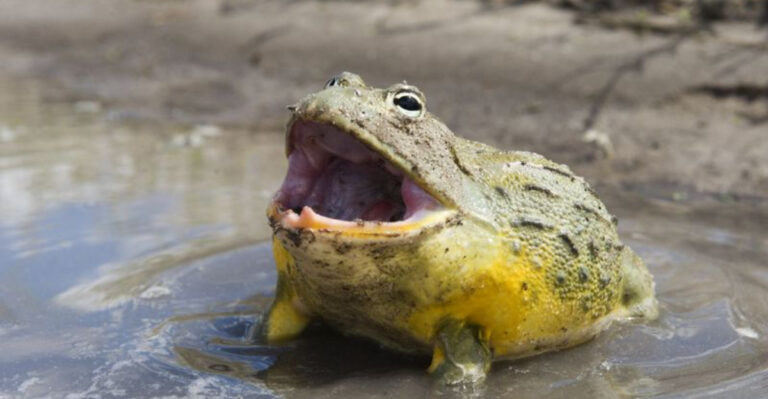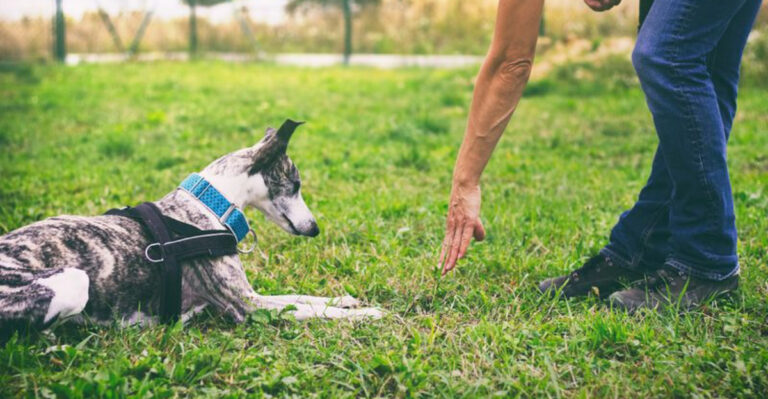13 Foods Cats Love But Should Not Eat
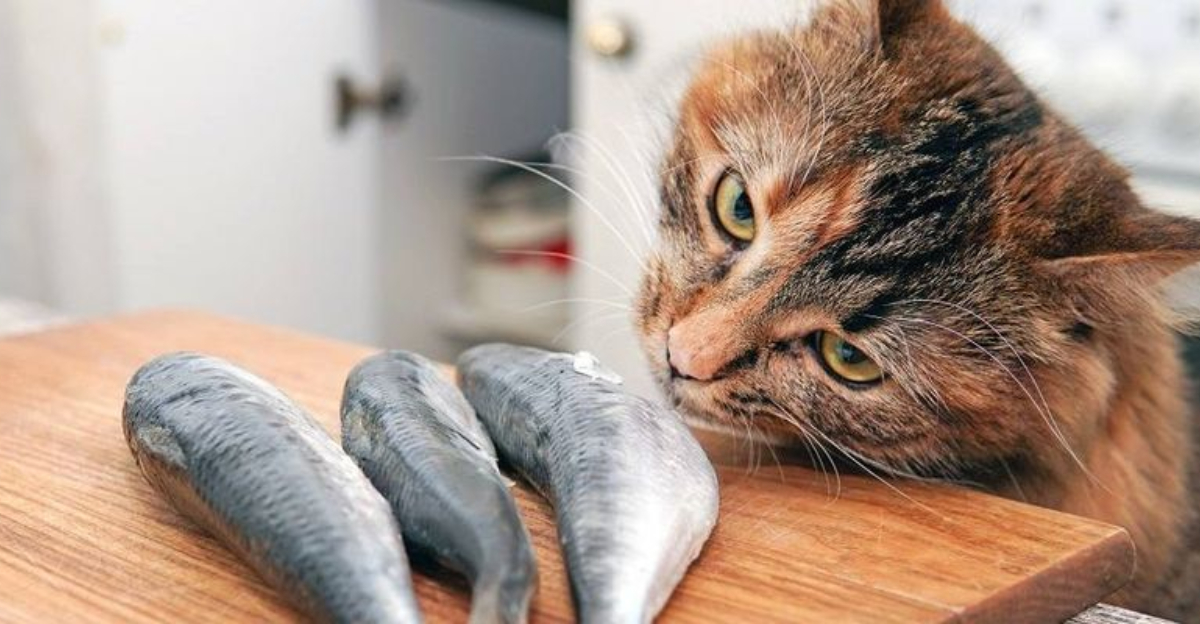
Our feline friends can be curious creatures, especially when it comes to human food. While sharing meals might seem like a way to bond with your cat, many common foods we enjoy can be harmful or even deadly to them.
Cats have different digestive systems than humans, making some everyday foods toxic to their health.
1. Milk And Dairy Products
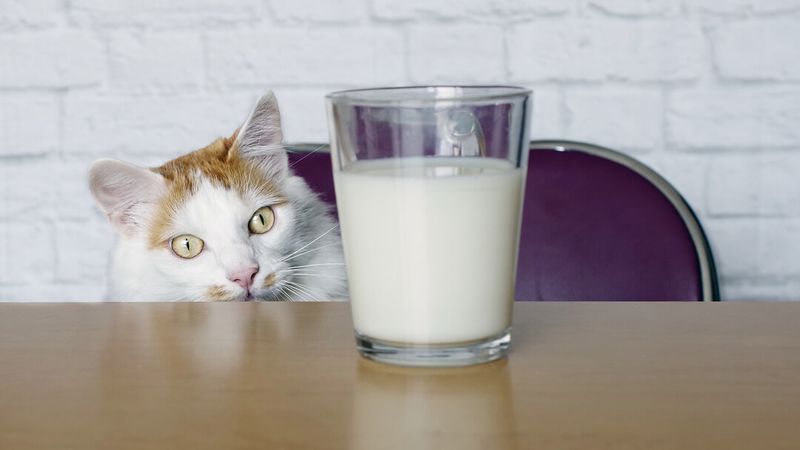
Contrary to popular belief, most adult cats are lactose intolerant. Their bodies lack sufficient lactase enzyme to properly digest milk sugar.
When cats consume dairy, they often experience uncomfortable digestive issues like diarrhea and stomach pain. Kittens can digest milk from their mothers, but lose this ability as they grow older.
2. Chocolate Treats
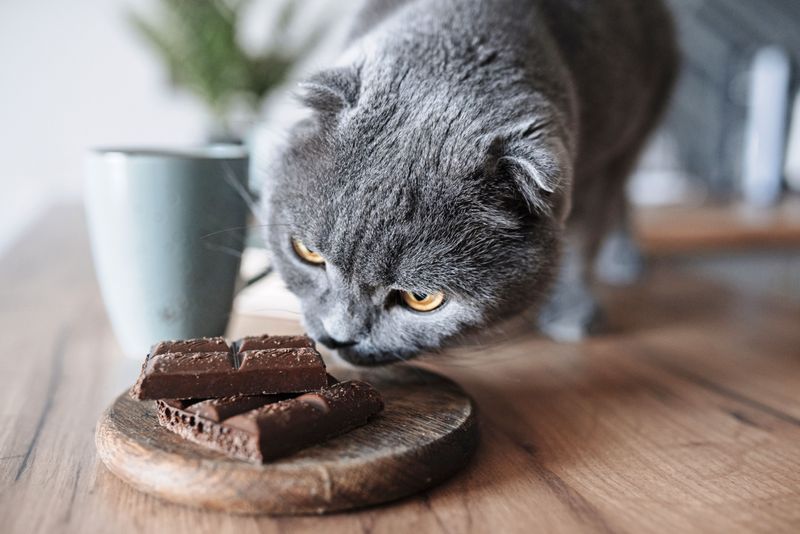
Chocolate contains theobromine and caffeine, both methylxanthines that cats cannot metabolize effectively. Even small amounts can cause serious problems.
Signs of chocolate poisoning include vomiting, increased thirst, restlessness, and elevated heart rate. Dark and baking chocolates are especially dangerous because they contain higher concentrations of these toxic compounds.
3. Raw Fish
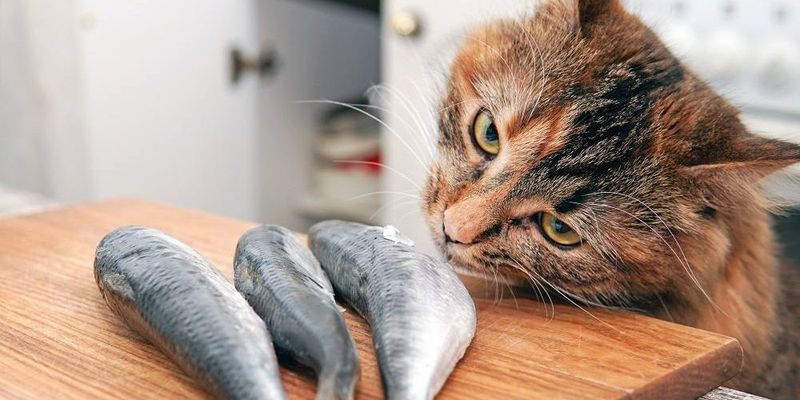
Raw fish might seem like a natural treat for cats, but it contains an enzyme called thiaminase that destroys thiamine (vitamin B1) in your cat’s body.
Thiamine deficiency can lead to neurological problems including seizures and brain damage. Additionally, raw fish may harbor harmful bacteria or parasites that can make your furry friend seriously ill.
4. Onions And Garlic
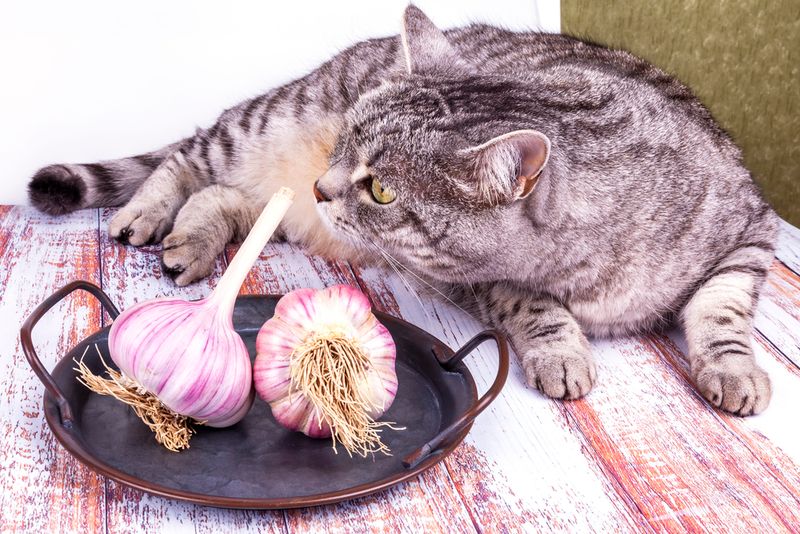
All members of the onion family (including garlic, shallots, and chives) contain compounds that can damage feline red blood cells. This damage can lead to a serious condition called hemolytic anemia.
Even small amounts in foods like baby food or soup can be problematic. Symptoms include weakness, vomiting, breathlessness, and discolored urine.
5. Alcoholic Beverages
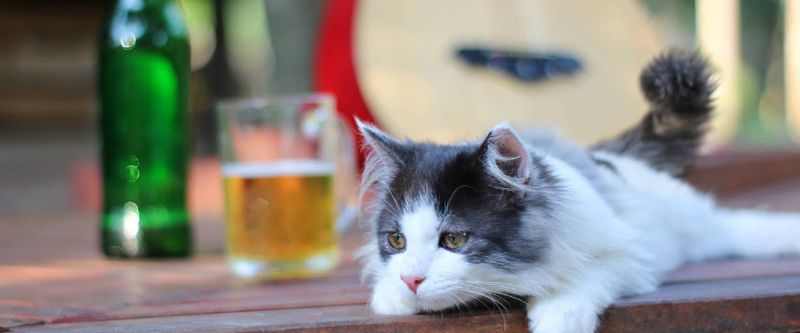
Alcohol affects cats much more severely than humans. Their smaller bodies and different metabolism mean even tiny amounts can cause serious harm.
Just a teaspoon of alcohol can lead to vomiting, coordination problems, breathing difficulties, and in severe cases, coma or death. Never leave alcoholic drinks unattended where your curious cat might sample them.
6. Caffeinated Drinks
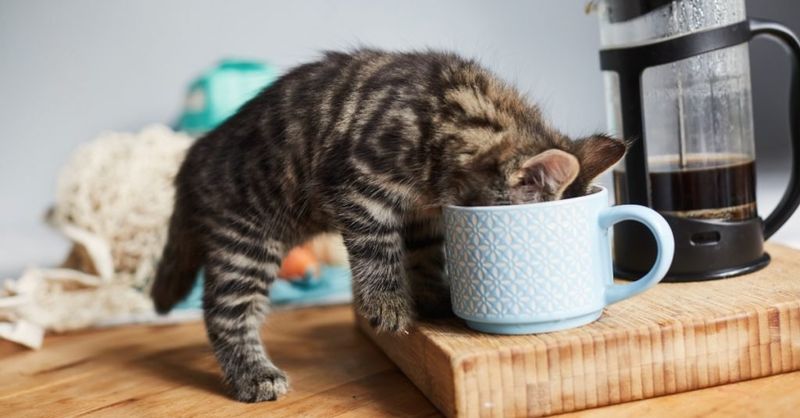
Coffee, tea, energy drinks, and sodas containing caffeine can be extremely dangerous to cats. Caffeine stimulates their central nervous system and cardiovascular system.
Ingestion can cause restlessness, rapid breathing, heart palpitations, muscle tremors, and seizures. Keep coffee grounds, tea bags, and caffeinated beverages well out of your feline friend’s reach.
7. Grapes And Raisins
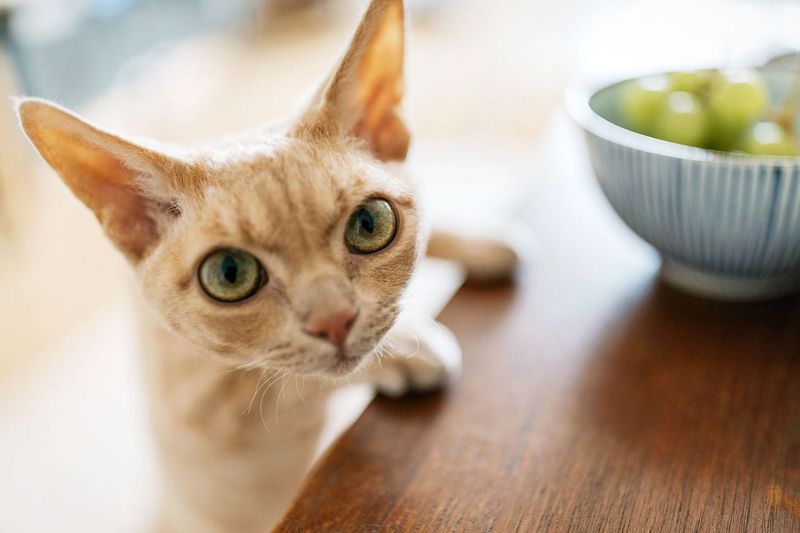
The exact substance in grapes and raisins that harms cats remains unknown, but these fruits can cause sudden kidney failure. Both fresh and dried varieties pose a threat.
Symptoms include vomiting, lethargy, and decreased urination. While some cats seem more sensitive than others, it’s best to keep these fruits completely away from your feline companion.
8. Fat Trimmings
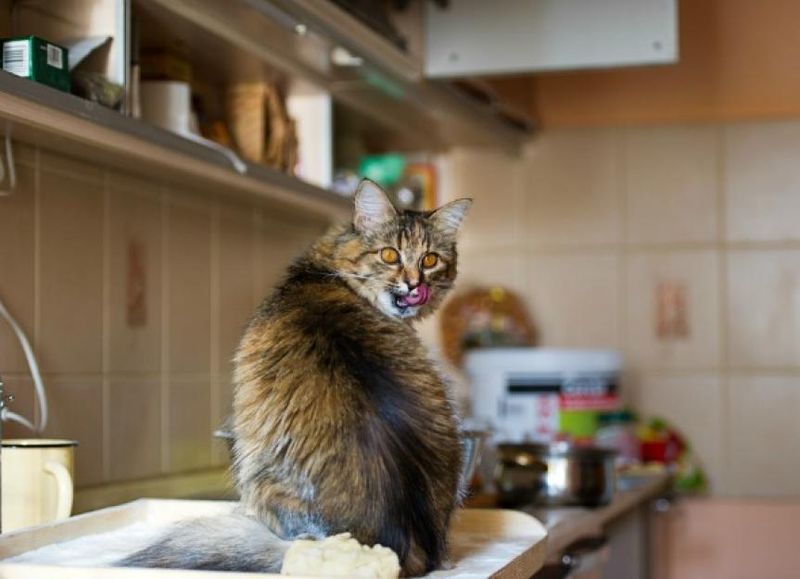
Many cats go crazy for fat trimmed from meat, but these rich morsels can cause serious digestive issues. Both cooked and uncooked fat can lead to pancreatitis, a painful inflammation of the pancreas.
Symptoms include vomiting, abdominal pain, and lethargy. Additionally, fat trimmings may contain seasonings like garlic or onion powder that are toxic to cats.
9. Raw Eggs
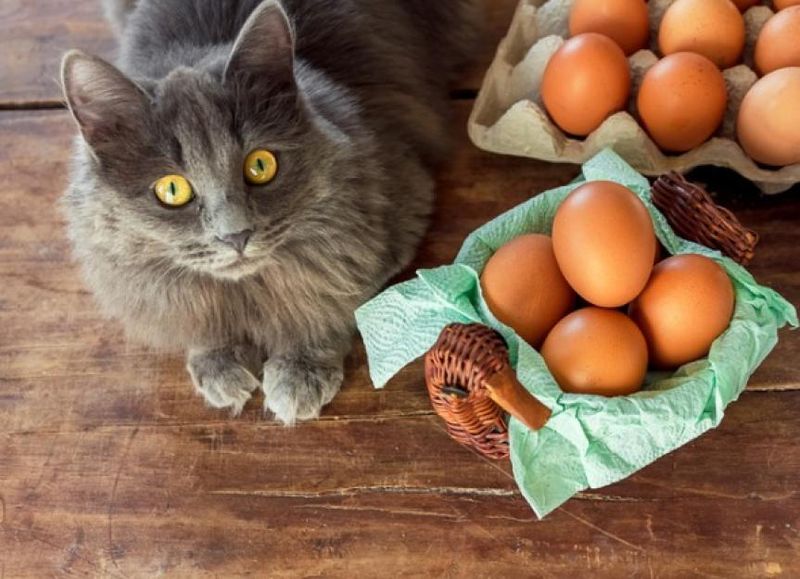
Raw eggs present two potential problems for cats. First, they may contain Salmonella or E. coli bacteria that can cause food poisoning.
Second, raw egg whites contain a protein called avidin that interferes with biotin absorption. Biotin is a B vitamin essential for healthy skin and coat. Cooking eggs eliminates both concerns.
10. Bread Dough
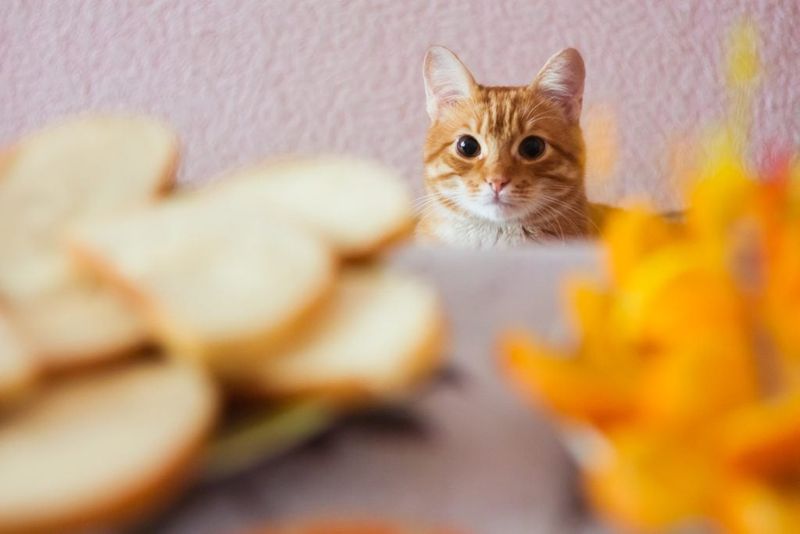
Unbaked bread dough containing yeast is particularly hazardous to cats. When ingested, the warm, moist environment of the stomach becomes perfect for the yeast to multiply.
This causes the dough to expand, potentially leading to bloating, pain, and even stomach rupture. Additionally, as yeast ferments, it produces alcohol which can cause alcohol poisoning.
11. Xylitol-Sweetened Products
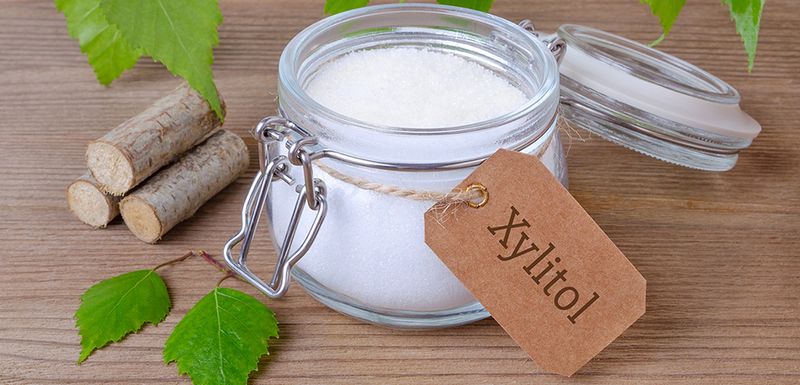
Xylitol is an artificial sweetener found in many sugar-free products like gum, candy, baked goods, and even some peanut butters. While its effects on cats aren’t as well-documented as in dogs, it’s still considered dangerous.
This sweetener can cause insulin release, leading to hypoglycemia (low blood sugar). Symptoms include vomiting, coordination problems, seizures, and liver failure.
12. Dog Food
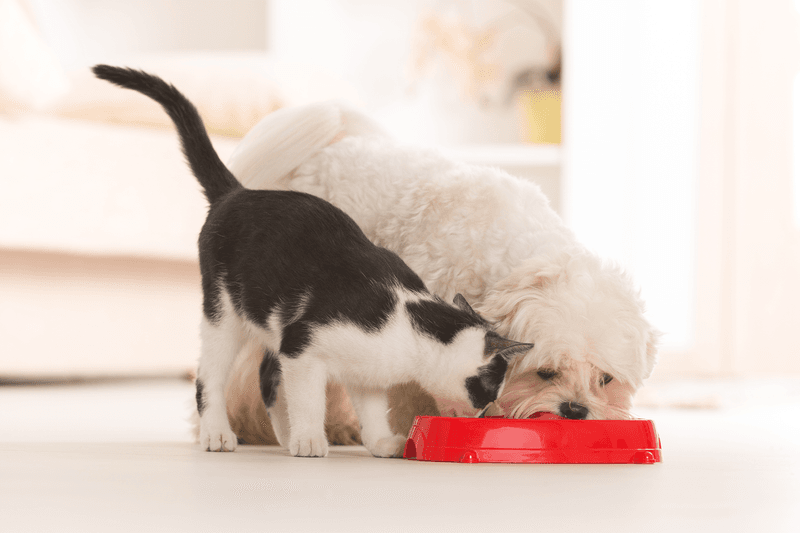
Many cat owners might think substituting dog food for cat food occasionally is fine, but cats and dogs have very different nutritional needs.
Cats require specific nutrients like taurine and arachidonic acid that aren’t adequate in dog food. Long-term consumption of dog food can lead to malnutrition, vision problems, and heart issues in cats.
13. Bones From Fish Or Meat
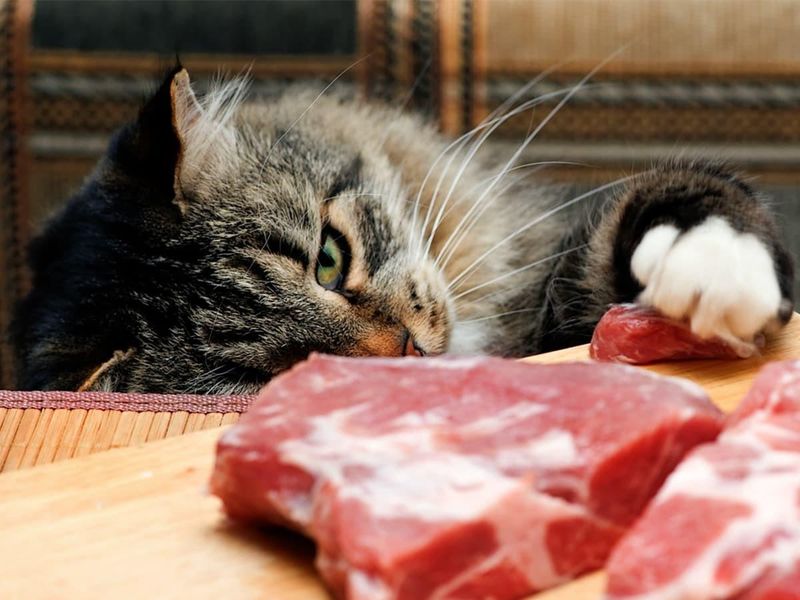
Small, brittle bones from fish or chicken can splinter easily when chewed. These sharp fragments may cause choking or puncture your cat’s digestive tract.
Larger bones present choking hazards or can damage teeth. While cats in the wild eat bones, domestic cats often lack the skills to handle them safely. Always remove bones before offering meat to your feline companion.

